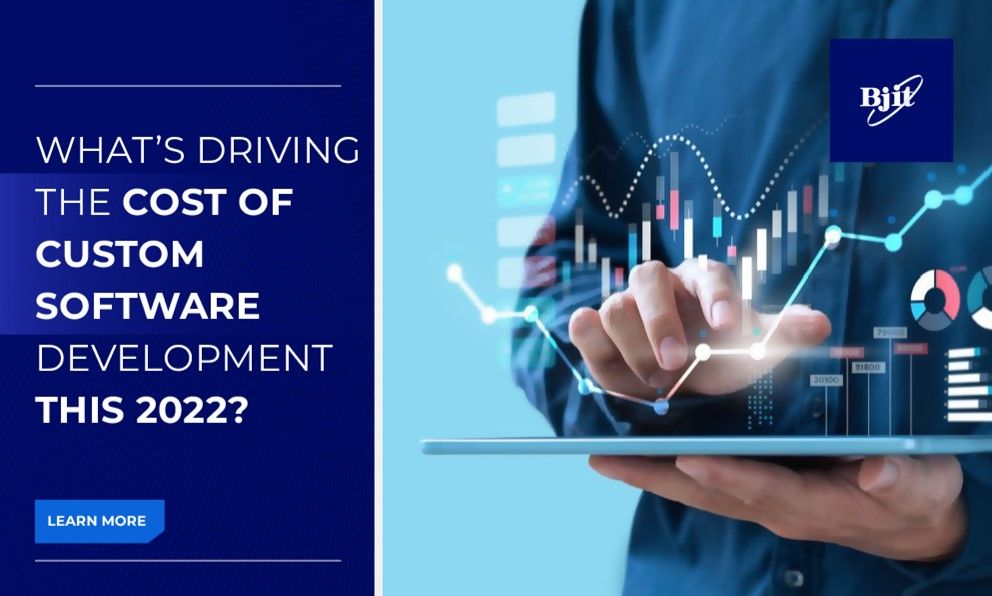The disruption that evolving technologies bring forces modern organizations to change. Blockchain technology is a fantastic illustration of technical advancement. Utilizing cutting-edge advancements in the industry, you may rely on blockchain solutions as an impermeable and secure cloud record for financial transactions and anything else of value to make strategic choices, streamline company processes, and develop new business models. Some of the main advantages of blockchain technology are transparency, privacy, continual accessibility, and 24/7 availability.
Think again if you believe that blockchain technology won't influence your company. Blockchain goes beyond cryptocurrencies.
What is Blockchain and how it is perceived?
One of the major technologies accelerating business change is blockchain.
Terminology ambiguity exists even though blockchain has become increasingly popular in the context of cryptocurrencies like Bitcoin. They still regularly use the terms interchangeably and continue to conflate Bitcoin and blockchain.
As a result, whenever they think about the implications of blockchain technology for business, they also think about the size of cryptocurrencies. The distributed ledger technology that underpins blockchain for business, on the other hand, is permitted to proliferate among approved partners. Its peer-to-peer topology reduces additional operating expenses while boosting security, transaction transparency, and data resilience.
Therefore, there is no excuse for you to pass up the tremendous economic opportunity that modern technology may provide you simply because you are stuck in the past.
Blockchain development services are helpful for new company models based on decentralized databases in a variety of different business sectors. Whether it's supply chain management in the logistics industry or smart contracts in the real estate industry, blockchain solutions perform wonders while providing the greatest degree of safety and accuracy. Blockchain-based business models continue to be affordable since there are no middlemen. For business clients, improved data traceability and verification using blockchain technology is particularly beneficial.
Statista expects that blockchain solutions will have spent 6.6 billion USD globally by 2021. Cross-border payments and settlements are the most important use cases for blockchain, and they have significant influence.
This article will go through how blockchain technology can dramatically improve business processes.
Ways Blockchain Enhances the Existing Business Model
Traditional company practices lack the resources needed to compete on a global scale and are out of date. Businesses, both old and new, have a range of issues that require multiple fixes. On their path to digital transformation, businesses may use the following tactics to embrace blockchain while lowering costs, shortening the time intermediaries need to respond to requests, and increasing ecosystem trust.
Smart Contracts
Blockchain technology is primarily being utilized to alter business through smart contracts.
As their name implies, smart contracts are a sort of self-executing contract in which all of the terms and conditions of both parties are stated as codes. Another significant use of blockchain in business is the provision of strong security controls inside the ecosystem. Due to the blockchain network's enhanced complexity and security measures, cyberattacks are also less likely.
The related conditions are therefore satisfied each time the programs are written. If one of the parties chooses to disregard the agreements, the services or goods are returned to the other party.
In this method, the use of smart contracts enables businesses to file lawsuits without enlisting the aid of a regulating attorney, an official from the government, or other intermediaries who charge a fee to settle disputes.
Strong Security
Another important use of blockchain in business is to provide robust security measures in the ecosystem.
Users of the network are encouraged to store and verify part or all of the data that is held there because of the technology's decentralization and transparency features. Traditional databases and Blockchain databases differ primarily in their decentralization. Cyberattacks are also less likely due to the blockchain network's increased complexity and security features.
Additionally, the use of blockchain in business for digital identification makes it possible for users to maintain and keep their identity as well as understand how they may access and use their information for any reason.
Increased speed and efficiency
One of the most significant advantages of blockchain technology is the automation of laborious operations to boost productivity. Additionally, it automatically removes mistakes caused by people. The blockchain may process transactions in some cases in a couple of seconds or less. For instance, Walmart used Blockchain business development technology to quickly identify the source of sliced mangoes, a process that had previously required seven days.
Effective Supply Chain Monitoring
Heavy engineering, manufacturing, pharmaceuticals, and chemical industries are just a few of the important sectors of the economy that largely rely on supply chain management. Businesses benefit from more openness thanks to blockchain technology, which also improves supply chain visibility for company owners. Businesses can easily keep track of their suppliers and vendors at any time thanks to blockchain technology.
Businesses may ensure genuine parts come from ethical sources by increasing supply chain transparency. All stakeholders, including investors, may receive digitized, auditable, and permanent records with blockchain-based solutions.
What Significance Will Blockchain Have in Business?
Blockchain technology has the unmatched potential to completely transform how things are done in the future by bringing new concepts and ideas into reality, merging those that are currently there, and making sense of everything that is happening in the market right now.
Like Silicon Valley, this industry's potential is only constrained by the innovation and hard work of the entrepreneurs and application developers who currently exist or intend to enter it. This shows that the importance of blockchain for both small and large company applications will depend on how effectively we use its potential in our corporate sector.
Several predictions have been made in the past regarding this, including -
- By the end of 2022, the annual worldwide expenditure on blockchain technologies will reach $11.7 billion.
- According to a Gartner report, by the year 2030, blockchain technology would produce an annual economic value of almost USD 3 trillion. This demonstrates that blockchain-based technology will dominate 10%-20% of the world's economic infrastructure within the next year.
- According to Statista, the blockchain technology industry will grow quickly over the coming years and will top USD 39 billion by 2025.
- By collaborating with the Internet of Things, blockchain is predicted to grow into the "Blockchain of Things" and generate a market worth $3,021 million by 2024.
- By 2025, blockchain technology will be used commercially in 55% of healthcare apps.
- The capacity of blockchain to provide real-time tracking information, data immutability, and transparency across distributed decentralized ledgers is also proving to be the best solution in the battle against the coronavirus.
- Business and IT services will eventually make up 70% of all blockchain spending.
- 81 million people will use wallets with blockchain functionality by the year 2022.
Let's briefly analyze how to incorporate blockchain into the business operations of your startup or an established company after talking about the future of blockchain and how it is altering business.
How can BJIT assist you with Business Transformation?
A software development business by the name of BJIT has a track record of offering superior solutions backed by cutting-edge technology like blockchain. The business has helped several clients create specific blockchain applications that meet the demands of business stakeholders both now and in the future. Early adopters of innovative technology, the talented team at BJIT has a broad client base across several business sectors.
The Endnote
Through security, data analysis, and control, blockchain provides a distributed ledger that improves the media supply chain and lowers copyright infringements. Blockchain technology is becoming more and more important as it is used by more industries, like healthcare, logistics, manufacturing, and IT, to foresee and resolve immediate problems. Blockchain is proving to be a game-changing technology that is having an impact across many business sectors, along with other disruptive technologies like AI, Big Data, and Cloud.
The supply chain, peer-to-peer banking, content distribution, healthcare data exchanges, and customer service will all benefit from blockchain development services in the future years. Businesses must immediately adopt this technology if they want to benefit from its advantages and transform countless processes.











